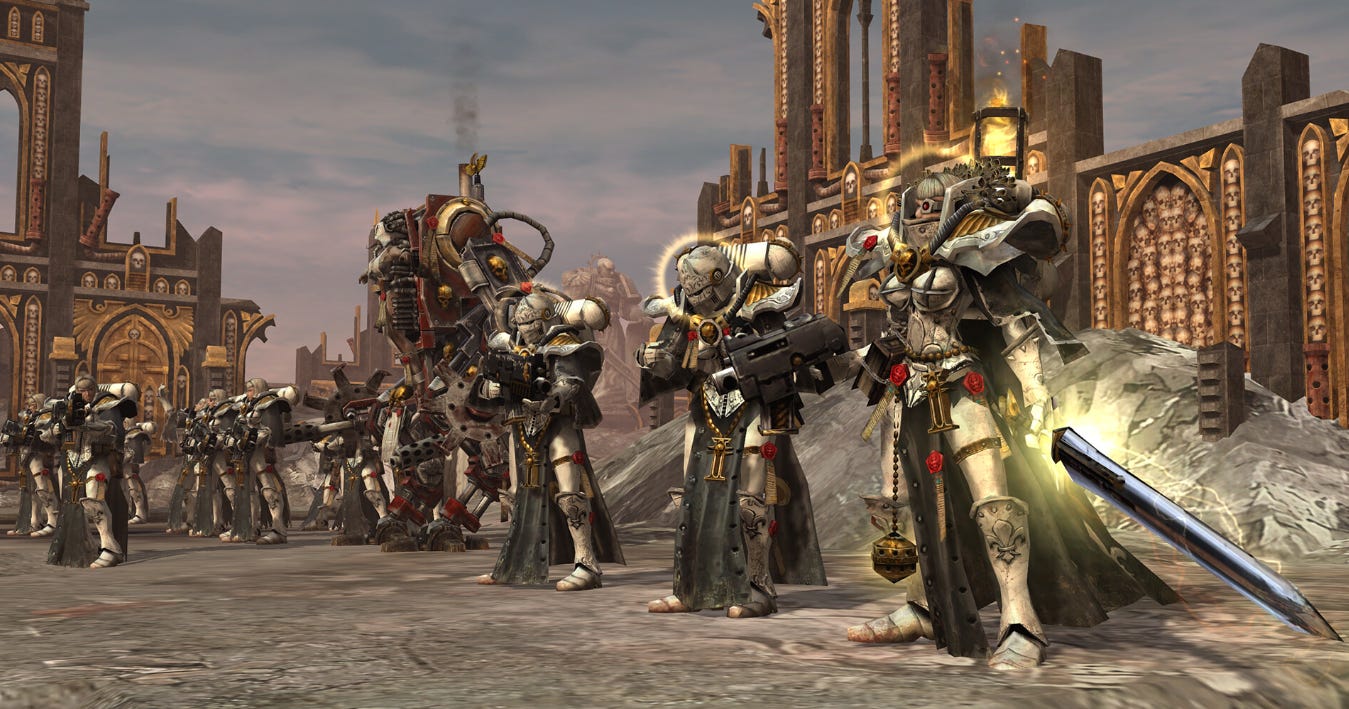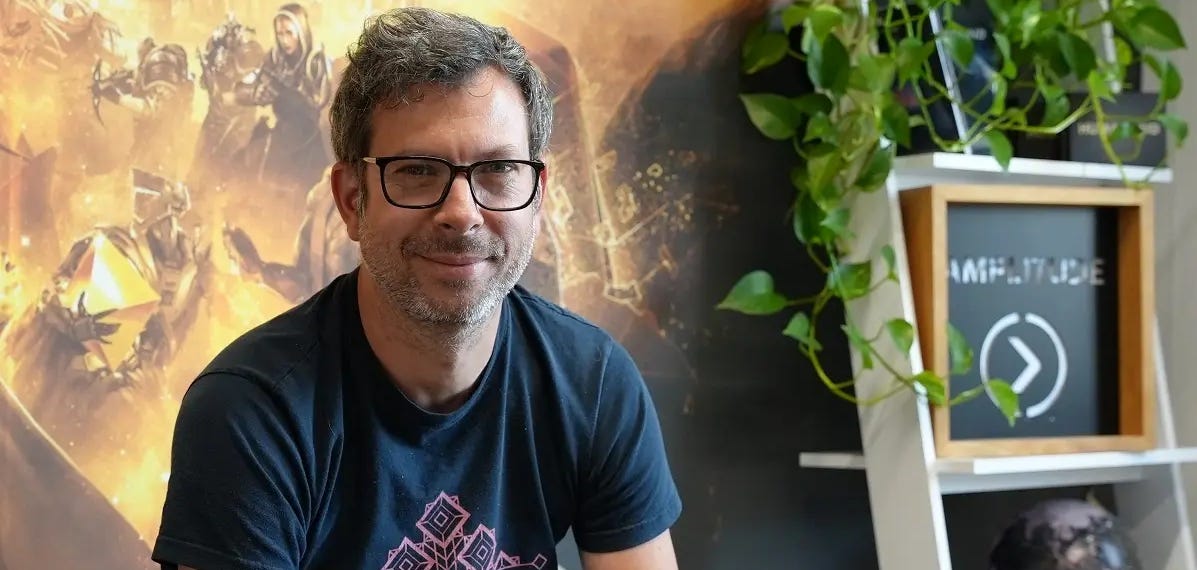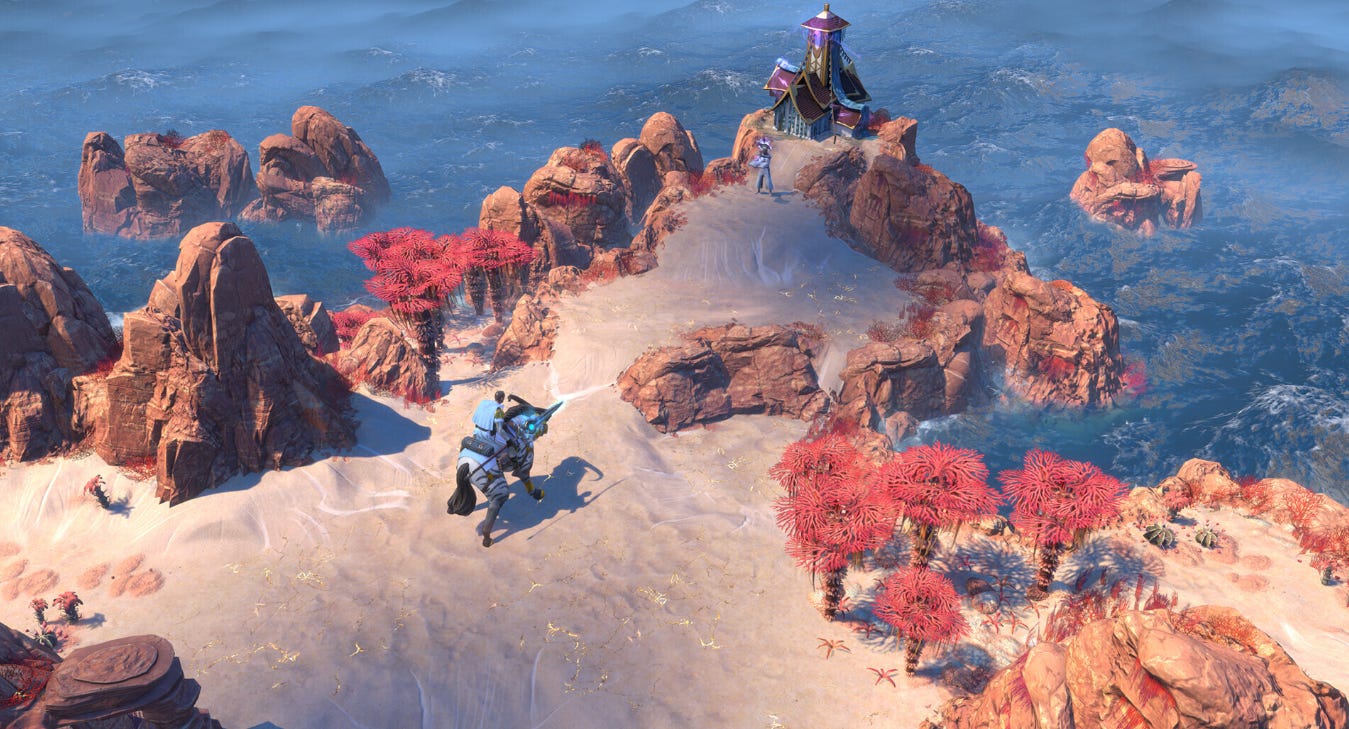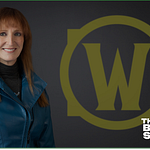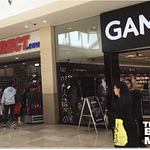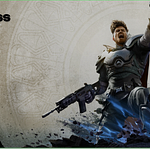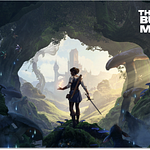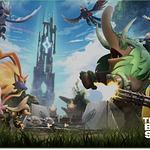Listen now on Apple, Spotify or YouTube
In This Edition
Relic and Amplitude on…
- The state of strategy games
- The hardships of leaving Sega
- Why they needed to go indie
Hello there! Did you have a nice weekend? I took the boys to see The Bad Guys 2. Now that would make a good video game. Like a kid-friendly, multiplayer Hitman.
Anyway, today we have a special treat for you with not one, but two interviews. They are connected (and both are under 15 minutes). The first is with Relic Entertainment, the real-time strategy specialists responsible for Company of Heroes, Warhammer 40,000: Dawn of War and Age of Empires 4. And the second is with Amplitude, the 4x strategy developer behind Endless Space, Endless Legend and Humankind.
Up until last year, these two were part of Sega’s army of strategy studios (which still include Creative Assembly, Sports Interactive and Two Point Studios). But they’ve bought their freedom and are now looking to forge a new future, not just for them but the entire genre.
As usual, you can watch or listen to the full interviews above (or via YouTube, or via your podcasting platform). Alternatively, keep reading and I’ll tell you what was said.
Enjoy!
Relic: We really need to make games faster
Relic’s journey to independence has been tough.
The Company of Heroes developer was one of the worst hit by Sega’s strategic shift, with more than 160 redundancies since 2023. The firm became independent in 2024 (with the help of Emona Capital) with its IP intact, but it’s been a learning curve for the Canadian studio, having been part of a large publisher since 2004.
“Relic has spent the entirety of its existence as a developer,” CEO Justin Dowdeswell reminds us. “And now we’re more. We’re publishing our own games. We’re having to learn a lot of new skills. A lot more about the industry. We’re in touch with parts of the industry that we didn’t know anything about. That’s a huge change.
“And we’re a little smaller than we used to be. So, because we're doing a wider variety of things, and we have fewer people, everyone's wearing more than one hat. There's a lot of growth that comes with that, but also a lot of change. It’s stressful. When we first left Sega, it was a lot of chaos. We didn't really know the direction we were going. That has completely changed and we have a really clear picture of our business and ambition. It's exciting.”
Of course, Relic doesn’t have to self-publish its games, there are other options out there. But Dowdeswell says “it’s about agency and the need to be faster”.
“I don't think that's limited to Relic. That's industry-wide. We're all learning that the ways of the past didn't serve us ultimately. And the urgency of that has been really important.”
“Because we're doing a wider variety of things, and we have fewer people, everyone's wearing more than one hat”
Relic has three elements to its strategy. The first is around supporting existing games and returning to some of its classics. Just last month it released a Definitive Edition of its 2004 game Warhammer 40,000: Dawn of War. It’s gone down well with fans, and sold 150,000 units in a day.
Then there’s the more ambitious titles that Relic is known for. “What we're trying to do is chart the path to the future of the genre,” Dowdeswell says. “We don't believe that we're just can keep making the same games. It has to advance, it has to evolve.”
And finally there is its Relic Labs initiative, which is about developing smaller, indie-like games much faster. The first project is an RTS game called Earth vs Mars.
“Relic is known for a certain kind of game, and there are expectations around spectacle, scale and scope,” Dowdeswell explains.
“We're still doing that. We're still Relic. But in the past Relic has taken a long term to get games to market and those long gaps means we lose touch a bit with player behaviors, with trends, and we're out of sight and out of mind. So making games faster is a key ingredient to our strategy.”
Relic Labs allows the team to take risks with gameplay, technology and IP, without spending huge sums of money. But it’s not just these games that will have shorter development schedules. Dowdeswell hopes that Relic’s bigger games will be made faster, too.
To achieve that, the firm talks about not reinventing everything with each new game. It reminded me of our interview with Hitman developer IO Interactive, which revealed that each title in its recent Hitman trilogy was made on a smaller budget than the previous one due to smart reuse of assets and technology.
“We'd like to do that, but it isn't always what happens,” Dowdeswell says. “Sometimes budgets go up, expectations go up… the trick is to be careful about what you change. And when you go over long time spans, technology advances, visual quality expectations get higher… there’s a balance.
“It’s really about making sure we leverage the investment we make in technology and our game designs over years, instead of starting from scratch. That reinventing the wheel each time is what makes things take a long time.”
Unfortunately, one franchise that will be starting from scratch (to a degree) is Dawn of War. Despite Relic’s recent success with the Dawn of War remaster, the next game in the series has been handed to a new studio called King Art.
“That franchise is near and dear to us,” Dowdeswell says. “We care about it deeply. And I'm so impressed with what King Art have done. Watching those trailers is just fantastic. We have a long history with the franchise and obviously our multiple decade relationship with Games Workshop is very strong. So, we're just excited to see what they do.”
The strategy genre is having a bit of an odd moment. Certain big releases, such as the new Civilization VII, are struggling to connect with audiences. And market research suggests players are becoming less interested in the genre.
“It could stagnate,” warns Dowdeswell. “That's what I was talking about with our belief that Relic is one of the studios that can take the genre forward… it has to take the genre forward. Our work to understand what no longer works for players, what no longer appeals, it’s so important.”
Yet Dowdeswell says that the biggest risks facing Relic is less about the state of the genre, but rather the team’s ability to adapt.
“We have to adapt to the pace. We need to be faster. The old playbook was if you needed a bigger team, you just hire more people. I don't think anyone would say that's the way to do it now. So, we’ve been much faster and stronger at working with external partners. If we don't succeed in expanding our capacity that way, that's a big risk.
“We need to stay close to the players. That's a huge change for Relic, too. Relic has been around for a long time and that gives us a lot of strengths. But some of the ways that the studio grew up with no longer apply. One of those is being connected to the players. We could do a better job, and we are trying to.”
There are downsides to leaving a corporate environment like Sega, of course. But one of the benefits of independence is that ability to make faster decisions, which is going to prove essential for Relic.
“There's also a fire in our bellies,” Dowdeswell concludes. “It's ours to take where we want to take it. It always has been. But I feel like that agency we've gained is crucial.”
Amplitude: We were very lucky to get funding
Amplitude’s games are routinely hitting between two and three and a half million sales, but it’s dreaming of far more.
The French developer makes ‘4X games’, a subgenre of strategy that includes the Civilization series.
“If we look 15 years ago when we started, the genre has grown a lot,” says Ampltiude CEO Romain de Waubert de Genlis.
“When we had the idea of creating Amplitude, we looked at the sales numbers of Civilization. It was analyst estimates. And at the time, Civilization IV was around two million. It was still huge. It was like, ‘Cool. We could do two million copies.’ So, we decided to create Amplitude. Now with Civilization VI, if you take all the players across all the platforms it’s what… 16 million?
“All of our games are between two and three and a half million players. So it is a huge niche. But if you look around us, you don’t have a lot of 4X on PC and console… Firaxis, Paradox and Amplitude, we are the three. But if you take a look at phones, one of the most successful genres on phones is 4X. It’s free-to-play, so it’s very different. But the idea is there.”
“Thanks to that moment that we had with Sega, we have reached millions of new players we could not have reached before.”
The last time I spoke with Amplitude was back in 2016, shortly after the firm had been acquired by Sega. Now it's independent again, and it’s quite the different beast. When Sega bought it, Amplitude had 52 employees. It now boast 145. Whereas Relic came out of its Sega relationship in a weakened state, the same wasn’t true of Amplitude.
“Thanks to that moment that we had with Sega, we have reached millions of new players we could not have reached before,” De Waubert de Genlis says. “But now they're aware of us. Now they are playing our games. Now they're following us. So, by being indie again, can we still speak to them? We believe that we can.”
It might seem surprising that Sega would let Amplitude go. And De Waubert de Genlis admits that “if the industry was not in crisis, this would’ve never happened.” Initially Amplitude funded the exit themselves, but the developer needed investment once on the other side.
“I thought it would be easy,” De Waubert de Genlis says. “Although we're in a crisis, we were leaving with the IPs, we're leaving with a huge community… a back catalogue of games. We were sure it would be easy.
“We had to find the right people who are looking for games like ours. People looking for the best [strategy games] with a very active community. And really fast, we had people say ‘that’s what we want. What do you need? When?’ So, it sounds easy, but when I discuss with everyone else… we've been lucky.”
Outside of funding, Amplitude needed some key expertise that had been left behind at Sega. This included live-ops and data specialists, which the company had become accustomed to within its previous owner.
But one thing it decided against was handling publishing duties. Unlike Relic, Amplitude sought a partner for this, and De Waubert de Genlis had a specific one in mind.
“I was a big fan of Hooded Horse, but it took me a while to realize that,” he says. “I was playing strategy games at home, and I realized after six months that all these games were coming from Hooded Horse.
“It was around the time when we decided to go indie. So, we managed to get the contact for Hooded Horse, so we could say: ‘Hey, we’re going indie’. And Tim Bender [Hooded Horse CEO], was like: ‘Really? Yes, we want to work on that’. We’re both fans of each other’s games. There was maybe one day of difficult negotiations on stuff we did not agree on. But it took one day. I've been on deals that took months to go forward. And they’re small as well, so if Tim wanted to do it, he will do it. He doesn’t have to ask 20 people if they agree. It was the same on our side.”
Now Amplitude has its publisher, its team and its funding, how can it bridge the gap between the 3.5 million players it currently reaches, and the 11 million-plus of Civilization?
“You can't do that overnight,” De Waubert de Genlis concludes. “You need to have patience. You have to be consistent in the games you deliver. It's also about servicing your games every month, every year. And We want to grow our universes. That’s why we’re working on a TV series with Passion Pictures for the Endless universe, it’s to speak to new players differently.
“We have a good recipe. Endless Space 2 is seen as one of the best strategic space war [games], Endless Legend on the fantasy side. And then Humankind. There’s a very interesting influence between Humankind and Civilization that goes both ways. And we have a lot of common players as well.
“So, it's just the beginning of something that will take maybe 15, 20 years to reach. ut it's getting there.”
That’s it for today’s two-parter. We’ll be back on Thursday where we will be discussing the state of the console industry. Until then, thank you for reading.



